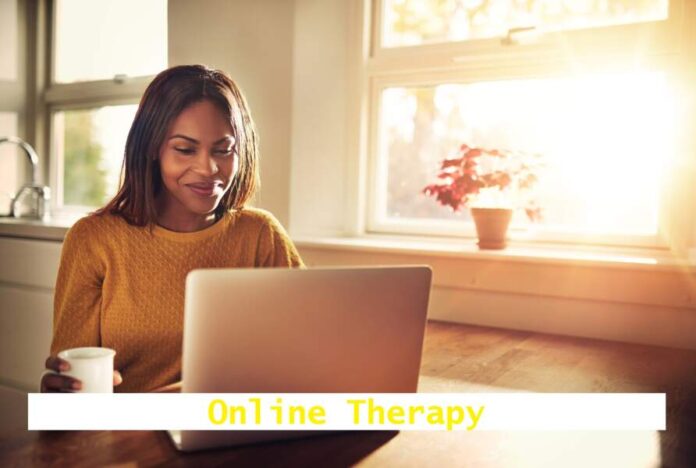These are the top 12 online therapy methods for you. Telehealth is a helpful advancement that makes healthcare easier for people with physical and mental conditions. Online therapy is a great way to get psychological help, and there are many options available now. However, some people might be unsure about trying virtual counseling. Teletherapy has been around for a while, but the COVID-19 pandemic made it even more popular. A study in 2021 showed that both in-person and virtual therapy produced similar results, so online therapy can be just as effective as in-person sessions. It’s a convenient and accessible option for many people.
Do Not Be Willfully Angry
When people switch from traditional therapy to teletherapy, they might not realize that there are some differences between the two. Furthermore, they could bring their old ways of thinking, called cognitive biases, into the new online sessions. Also, these biases can affect how we make decisions in life, including ones about our mental health. But the good news is that research has found ways to overcome these biases. By understanding our own possible biases, we can learn to make better choices for ourselves and get the most out of online therapy.
Trust Science
Many studies have shown that online therapy is just as effective as in-person counseling for most people. For example, a study in 2014 found that online treatment worked equally well for depression. Also, another study in 2018 showed that online cognitive behavioral therapy was as effective as in-person treatment for several mental health conditions. Even during the COVID-19 pandemic, when many had to switch to teletherapy, research found that people with serious mental health challenges also adapted well to online counseling. So, overall, online therapy can be just as helpful as going to a therapist’s office for many patients.
Use the Strengths of Online Therapy
Getting mental health treatment online is much easier and more convenient than going to see a psychologist in person. Moreover, all you need is a good internet connection, a webcam, a microphone, and some basic computer skills. With online therapy, you can save time and money because you don’t have to travel to the therapist’s office. Also, you can schedule sessions at a time that suits you, even during work hours. If you live in a remote area, online programs like Cerebral and Faithful Counseling can give you access to specialized counseling that might not be available locally. Plus, online therapy is often cheaper and covered by insurance providers now.
Address the Weaknesses
One challenge with online counseling is having the right technology and skills. It can be harder to form a close bond with your therapist because non-verbal cues are limited. You have to express yourself more intentionally and analyze your feelings on your own. While there are many benefits to having therapy at home, some people might prefer the neutral space of a therapist’s office for sharing personal challenges. It’s important to research and find reputable, licensed therapists with clear payment structures before starting virtual counseling. Also, you must address the weakness to find the strength.
Always Be Intentional
The first and most crucial step in therapy is knowing your goals. Think about how online therapy can help you achieve them, while also addressing any drawbacks. Write down your goals and commit to reaching them. Be your own advocate, especially in the less-regulated online therapy space, and take proactive steps to achieve what you want. Once you have done this, you can start improving. This is the very first step. And it is quite crucial. Always bear it in mind. You must be self-conscious when you do this. It always helps a lot.
Choose Your Therapist
Consider what traits you wish for in a therapist. It is very important. Take some time and create a comprehensive list. These must be the qualities that you want. Empathy, genuine care, direct communication and many more. Thus, you need to search for the qualities that you like a lot. After this, search for a therapist that has the qualities you require. It will save you a great deal of effort and time. It will also fulfill your expectations.
Fail Fast
When you start with a therapist, try to find out quickly if they are a good fit for you. Focus on understanding if they match your needs before diving into treatment. Be honest with them about your goals, story, and the kind of mentor you prefer. Also, ask if they think they can help you and what treatment plan they recommend based on what you shared. Pay attention to your initial interactions to see if they feel right for you. If they’re not the right fit, move on and find someone who is. Being proactive will lead to a better therapy experience for you.
Choose Small Goals
Choose a small, meaningful goal that can improve your mental health but is not too difficult to achieve. Use this goal to evaluate if the therapist is a good fit and if their treatment plan makes sense for you. Keep it simple and impactful, helping you gauge your progress with the therapist effectively. Also, it will be very beneficial for you. In the long run, you must learn how to choose small at first. It helps a lot in the initial stages. So begin with small steps and go big later.

Take Control
Don’t rely solely on your therapist to manage your treatment in online therapy. Stay organized by taking notes on your progress. Regularly reassess your feelings and progress with your psychologist every month. Being proactive and keeping track of your own development is essential for successful online therapy. Also, you must manage your life yourself. Nobody else is going to do it for you. This is quite simple. If not you, then you? This must be the mantra of your life. Try to take control in small steps at first and then graduate to something bigger when you have enough strength.
Know When To Wrap Up
As you near the end of your therapy, check if you’ve achieved your goals. Discuss with your therapist about wrapping up the sessions and preparing to continue independently. Some therapists may try to prolong treatment unnecessarily, so be aware and decide to move on when you reach your goals unless there’s a valid reason to continue. Ending therapy can be intimidating, but consolidating gains and being ready for independent growth is essential. Trust your judgment and take charge of your mental health journey. You must know when to end something that is harming you.
Expect Awkwardness
No matter the technology or how familiar your therapist is with it, online therapy can feel different from in-person sessions. Don’t worry if you and your therapist don’t sync immediately. For instance, when I messaged my therapist, I had to get used to not receiving instant replies. Feeling a bit uncomfortable or awkward doesn’t mean online therapy isn’t working. Keep talking to your therapist openly, and you might find that you can adjust and adapt to the new experience. It takes time, but staying in communication is the key. Also, it is quite natural to expect awkwardness.
Be Flexible
Some therapy platforms offer different ways to communicate, like messaging, audio, and video. You can explore which option suits you best. For instance, if you’re with your family and want privacy, messaging might be a good choice. Or if you’re tired of staring at screens, recording an audio message could feel more comfortable. It’s essential to find what works best for you and your needs. For this, you must know your own limits first. Only then can you be flexible with the therapy. It is only the natural path to expect. Do not be afraid to fail.
Also read: Ways to Help Your Children Communicate Their Feelings

































































